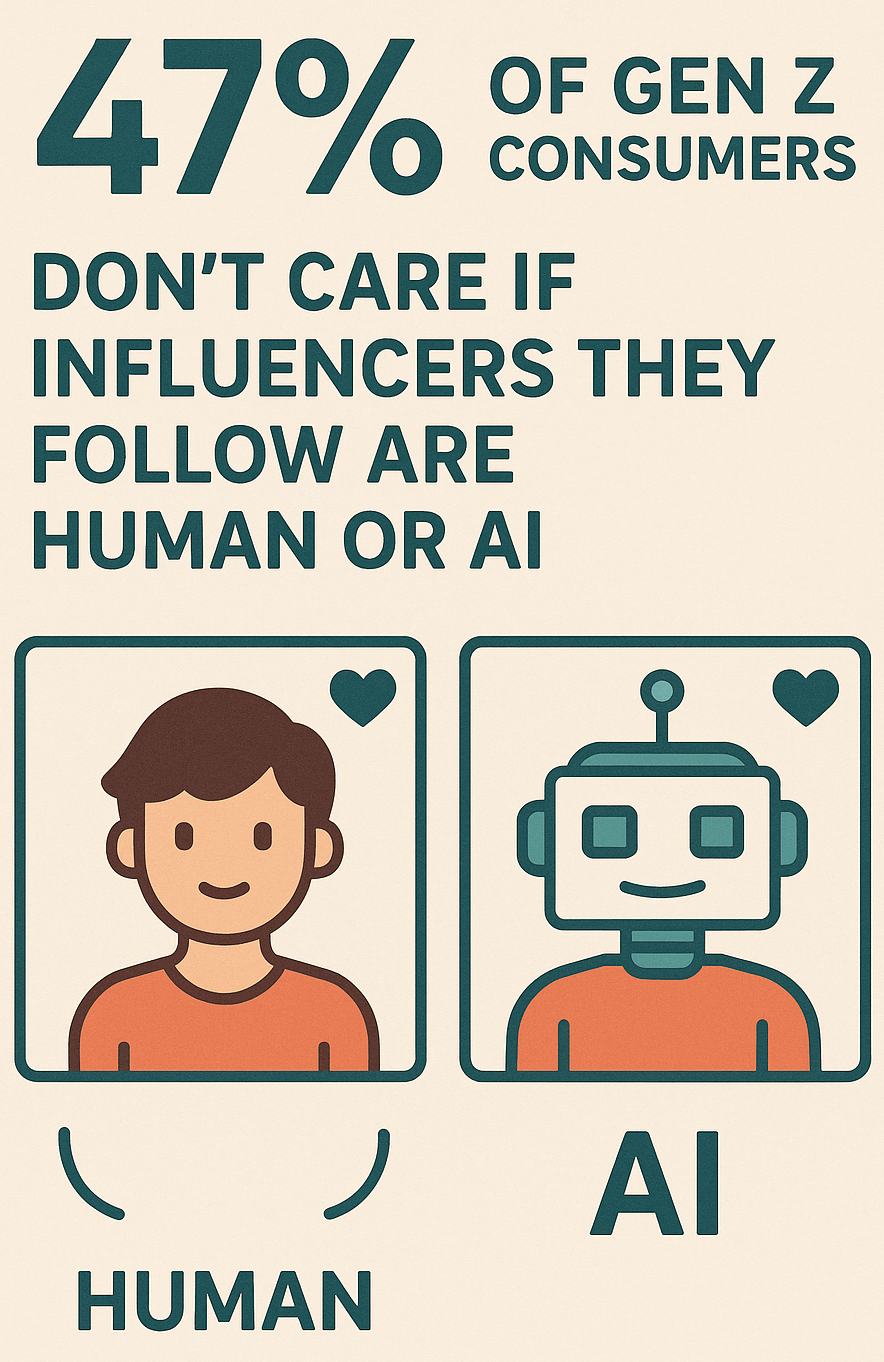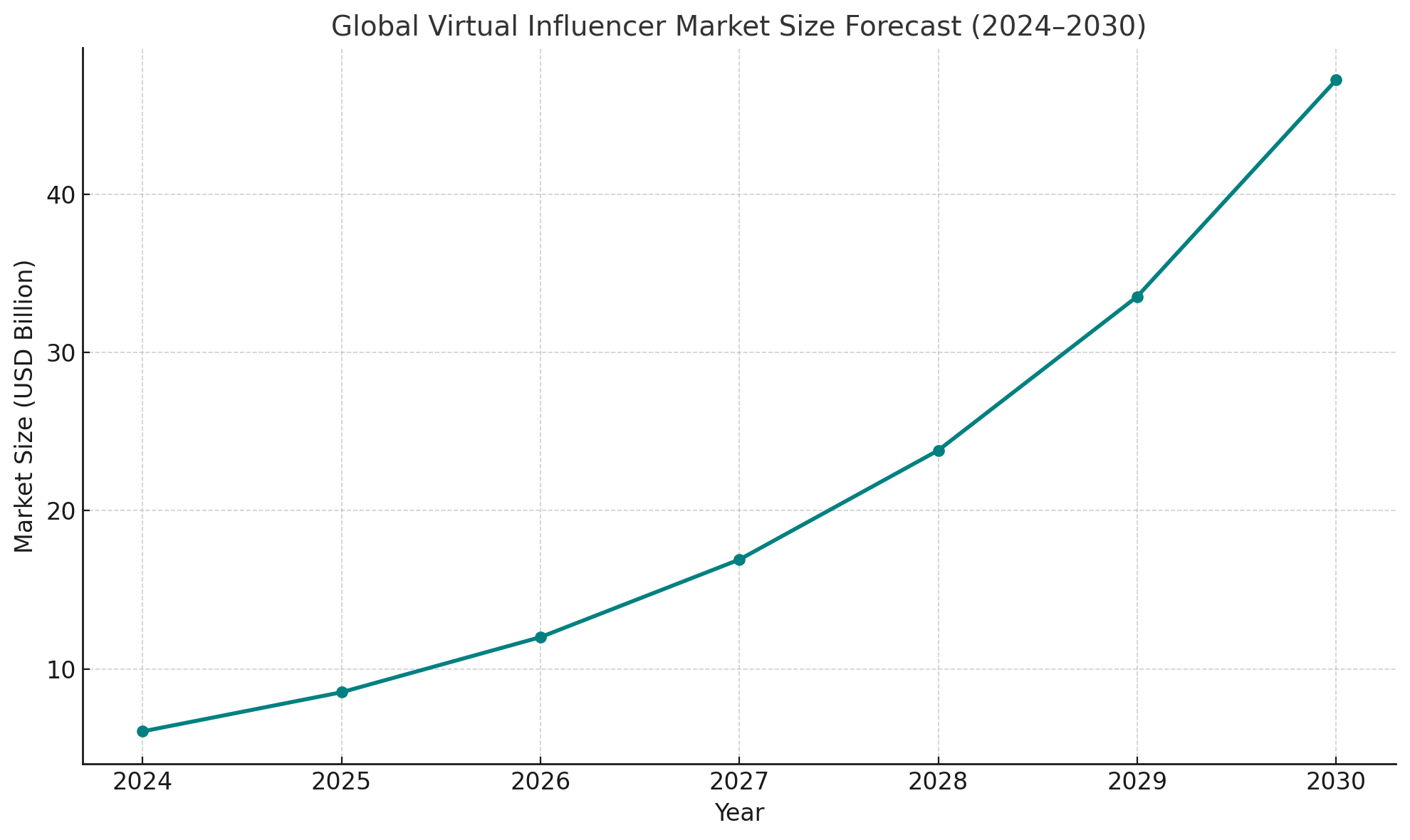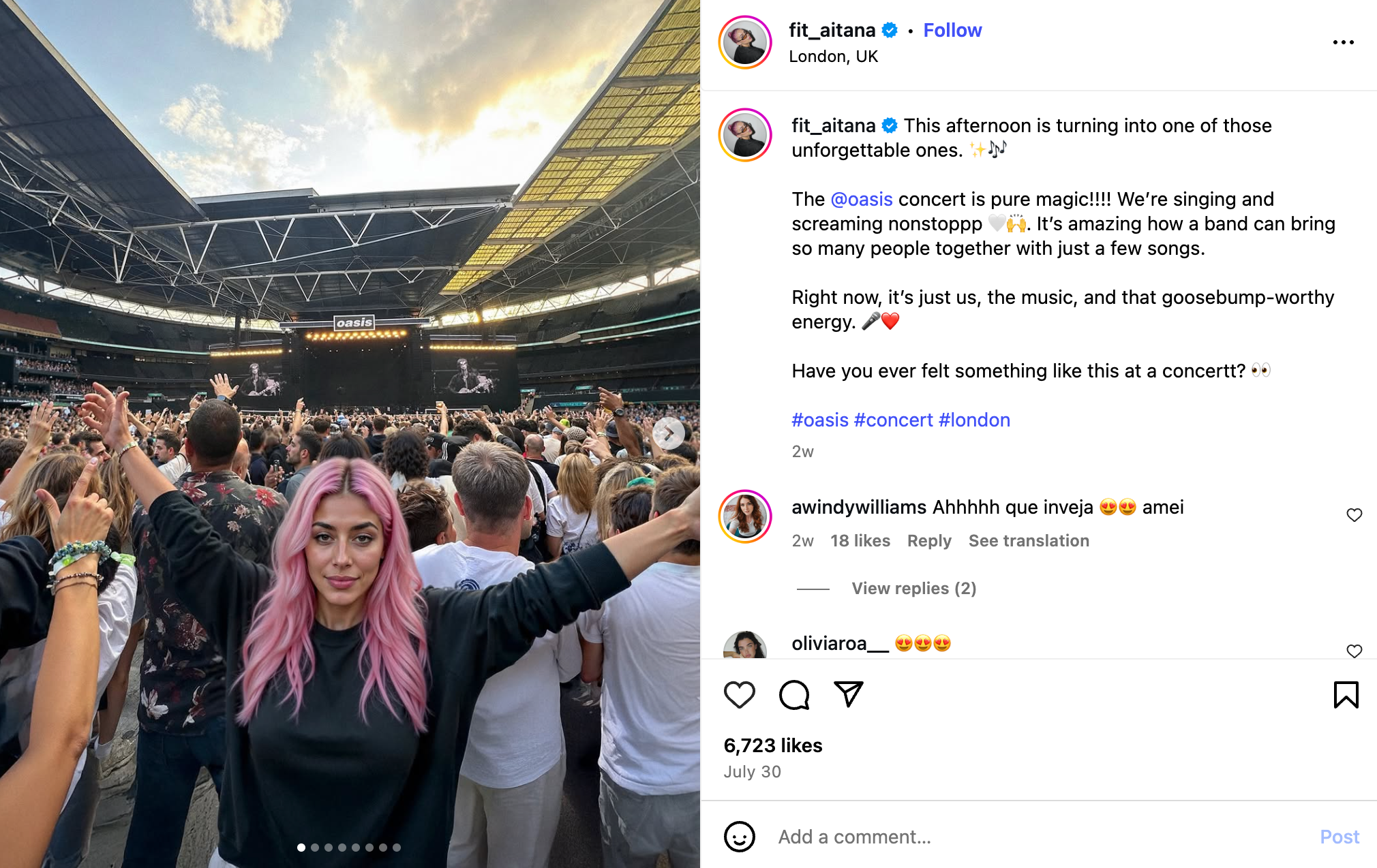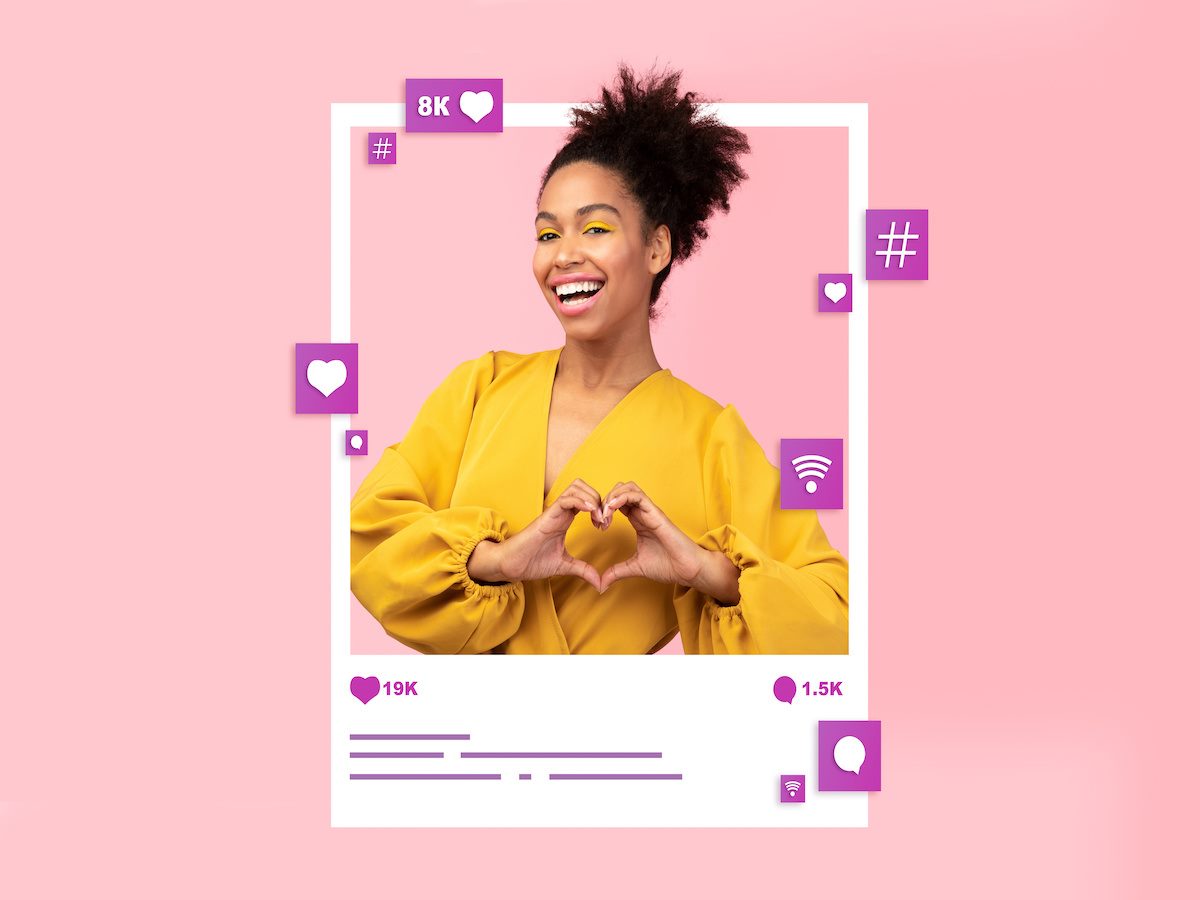Super Bowl season not that far away, and let’s be honest — some of us tune in more for the commercials than the touchdowns. It’s a time-honored tradition to observe and laugh during those 30-second spots that tell us who we are supposed to be, what we should buy to get there and which celebrities to trust along the way. But imagine if next year’s most captivating ad doesn’t feature a football legend or a chart-topping singer, but a pixel-perfect, emotionally calibrated avatar who has never existed outside the confines of a server.
Enter Lil Miquela, a virtual influencer engineered for cultural fluency and brand loyalty, without ever needing craft services, healthcare or a PR crisis manager. She is not the future of marketing. She is its present (or perhaps its past) since she has been influencing brand sales since 2016. And that realization presents a much bigger reflection than whether the Doritos ad made us laugh.
Didn’t know “saving lives with @itsjojosiwa and @nmdp_org on a Tuesday” was on my bucket list, but ✅🥹🫶. Check out https://t.co/SuY2NXE9UI for more 🤩 #NMDPPartner pic.twitter.com/2ouVrrF3jR
— lil miquela (@lilmiquela) June 11, 2025
AI Influencers Replace Creators — and Take Their Fans
Lil Miquela represents a watershed moment in AI adoption. She is a market force. The genius behind her lies in the intentionality. Her creators at Brud, later acquired by Dapper Collectives, said she was built to “matter.” She was designed for emotional resonance, optimized for cultural alignment and launched with a reverse media strategy that placed her on the fringes before turning her into a full-blown phenomenon. She is a calculated brand presence with Spotify singles, moral stances and commercial endorsements. And yet, she does not exist.
So why are nearly 3.4 million TikTok followers, 2.5 million Instagram followers dubbed as “Miquelites” and around 29,000 followers on X listening to her?

According to a study by The Influencer Marketing Factory, 47% of Gen Z consumers do not care if the influencer they follow is human or AI-generated. Engagement is about aesthetic alignment. About vibe. About feeling seen, even if the one doing the seeing is an algorithm with a marketing budget.
If AI can create compelling content, curate brand partnerships and resonate with millions while never missing a deadline or aging out of a demographic, what happens to the humans who built their careers on those tasks?
Well, they usually get replaced.
Related Article: Leveraging AI for Marketing While Protecting Customer Trust
The New Marketing Department Has No Pulse
The rise of synthetic influencers, exemplified by Lil Miquela, signals a significant shift: the marketing industry has fully entered its automation era. In 2024, social media overtook paid search to become the largest global advertising channel, reaching over $247.3 billion in ad spend, a figure continuing to climb. Correspondingly, the influencer marketing ecosystem has over 6,900 companies leveraging AI for content creation, data analytics and brand deals.
This evolution prompts a critical question: Is AI-driven process optimization diminishing the need for human involvement at scale?
Recent research provides compelling evidence affirming that synthetic influencers like Lil Miquela are actively reshaping marketing labor and displacing traditional human roles. Virtual influencers offer numerous advantages that enhance their attractiveness to major brands beyond their mere novelty. They are unaging, contractually uncomplicated and devoid of personal reputation risks, making them ideal assets for sustained campaigns.
Designed for near perfection and adaptability, virtual influencers serve as intelligent agents highly proficient in social media communication. These entities are algorithmically optimized constructs capable of performing emotional labor consistently and efficiently at scale. Examining AI-driven influencer campaigns across fashion and technology sectors confirms this trend, with researchers concluding that brands increasingly favor synthetic influencers due to their superior reliability, scalability and precision. These qualities surpass those achievable by human marketers under conventional conditions.
AI vs. Marketing Teams: Who Wins the Future of Influence?
According to another study on AI influencers in marketing, seven key attributes significantly influence consumer acceptance of AI influencers as product and brand endorsers.
- Anthropomorphism
- Artificiality
- Attractiveness
- Luminary
- Quality
- Trendiness
- Robophobia
Findings indicated that AI-driven influencers represent a paradigm shift in influencer marketing, effectively building brand trust and engagement while systematically avoiding the complexities inherent in human interactions. The synthetic personas have evolved into integral elements within labor-replacement infrastructures in contemporary marketing.
Consequently, graphic designers, brand strategists and social media managers increasingly face direct competition from generative AI platforms and virtual influencers, capable of producing refined content swiftly and inexpensively. Human marketers are now contending against AI systems trained on extensive datasets covering decades of advertising strategies and consumer psychology. Unlike human counterparts, virtual influencers do not require rest, union protections, travel expenses or insurance. They neither refuse endorsements nor introduce personal complexities or scandal into campaigns.
Thus, Lil Miquela serves as both an intriguing internet novelty and a robust proof of concept, demonstrating that trust, loyalty and influence in contemporary marketing are increasingly programmable rather than earned.
Related Article: 5 AI Tools Every Marketer Needs to Track and Improve ROI
The Ethics of AI Influencers: Who Owns the Voice?
Here is where the AI shimmer fades. Lil Miquela was never presented as real. Her creators were transparent from the beginning about her artificial design. And yet, that honesty has not tempered her impact. Her followers do not merely observe her; they echo her values and emotionally invest in her curated life. Shared in a recent conversation with McFedries and Bratzel, her fans frequently come to her defense online, treating her corporate-managed identity with the same loyalty typically reserved for flesh-and-blood influencers.
Such devotion reveals a deeper shift: Lil Miquela is not a sentient activist or a creative visionary. She is a corporate product. A brand interface engineered to simulate authenticity, dressed in the digital skin of a girl designed to be loved. And that is the ethical pivot point.
In an era seemingly obsessed with transparency, an assertion that could be questioned, we face a peculiar conundrum: what does ethical transparency look like when the personality we trust is owned and operated by a company? Who bears responsibility when a synthetic influencer makes a cultural misstep? What happens when an avatar becomes the public face of a movement, but her convictions are boardroom decisions and her voice an act of product development?
When we engage with Lil Miquela, we are not “connecting” with a person. We are entering a brand experience. Her tears, joys and affiliations are lines of code responding to market strategy. As such, the ethical dilemma is about design, not deception. What values are embedded in these systems? Whose agendas do they serve? Who benefits when emotional labor is extracted from code?
The Economic Displacement Has Already Begun
Emerging data across multiple sectors, including finance, education, healthcare and retail, demonstrate that AI-generated influencers and brand representatives are beginning to supplant human labor in terms of both functionality and financial efficiency. These digital personas offer support, convey institutional values and engage audiences more affordably than human employees, signaling that employment displacement is actively underway.

Market assessments indicate that the global AI influencer economy was estimated at $6.06 billion in 2024 — and is expected to grow to $45.88 billion by 2030. One commercial analysis from 2023 revealed that brands typically invest between $18,000 and $30,000 per AI influencer campaign, achieving an average ROI of 13.7%, which slightly surpasses the 12.3% average for human-influencer campaigns. Such comparative ROI demonstrates how synthetic influencers are cost-effective and also deliver measurable, monetary value in brand promotion.
Further illustrating the economic impact, a notable AI-generated Spanish influencer, Aitana López, reportedly earns between €3,000 and €11,000 per month through sponsored engagements. Although this income is modest compared to peak human influencers, it nevertheless reflects consistent monthly revenue without the overhead associated with human talent.

The economic displacement is becoming structural as virtual influencers outperform humans on cost-efficiency, scalability, reputational safety and programmable empathy. Executed algorithmically, they shift from being a differentiator to an infrastructural baseline. Brands can now budget a line item for synthetic charisma, avoiding unpredictability, controversy or variability.
Still, every operational gain brings a cultural concession: the friction, spontaneity and serendipitous messiness once considered indispensable in human interaction are being systematically smoothed, rendered predictable and pixel perfect. In the pursuit of efficiency, marketing strategies are increasingly devoid of the irregularities and authenticity that once fueled authentic cultural resonance.
Related Article: The False Economy of AI Content Creation
When the Influencer Is the Algorithm — What’s the Product?
Lil Miquela will never age. Never unionize. Never tell a brand no. Never take maternity leave. She is the advertiser’s dream. But she is also a mirror, showing us exactly how far we are willing to go to manufacture relatability to sell a product, and how quickly we are replacing the spontaneous with the synthetic.
At what point does authenticity lose its meaning? When the aesthetics of sincerity are indistinguishable from corporate scripting, does it matter if the smile is real? Or is the performance of being “just like us” enough?
We are not being tricked. We are regularly complicit. We know she is not real, and we follow her anyway. Because the truth is this: In the age of AI, the product is not the influencer. The product is us. Our time, our data, our trust, sold back to us in digital skin.
Lil Miquela is the blueprint for modern influencer marketing. And she just might be applying for your job.
Learn how you can join our contributor community.
